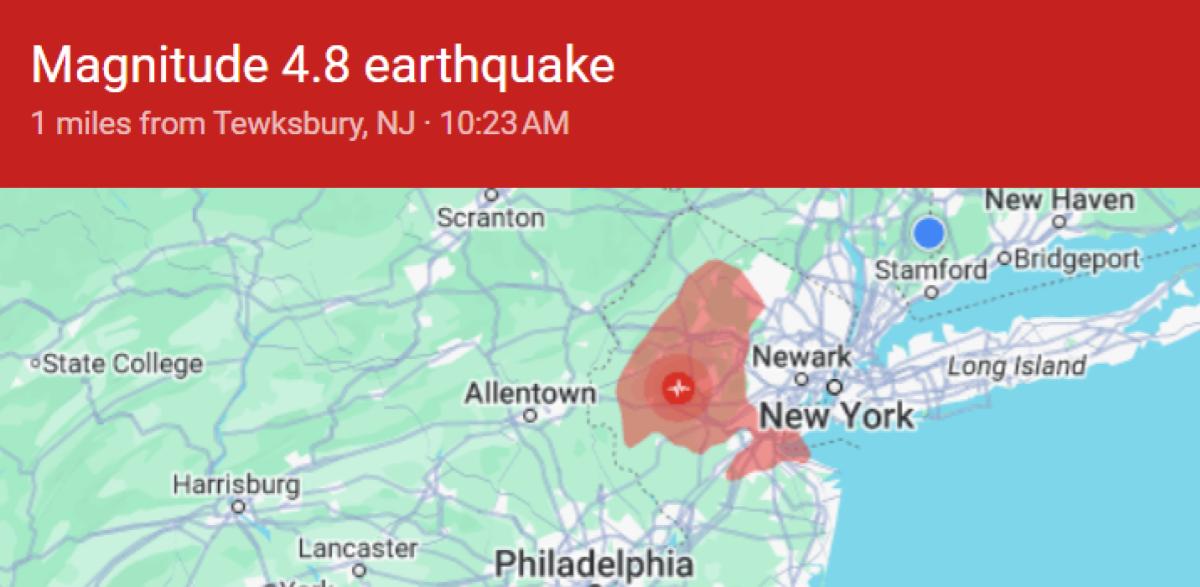If You Are In a Swimming Pool When an Earthquake Hits, Get Out!

By now, you have probably already heard about the 4.8 magnitude earthquake that hit New Jersey today (April 5, 2024). Residents from Boston to Philadelphia felt the tremors!
Not to make light of the situation, but I was curious about being in a pool during an earthquake. The obvious answer is “get out of the pool” After doing quite a bit of research, I have revised my answer to “GET OUT OF THE POOL!!!!“
While you obviously can’t expect to know when an earthquake is coming, you need to get out of the pool area as quickly as possible when it does.
Seiches and The Risk of Drowning
Earthquakes cause the ground to move rapidly, which can have a dramatic effect on bodies of water, no matter how big or small.
This movement creates waves, or seiches, within the pool. As a matter of fact, smaller bodies of water are more prone to bigger seiches.
Seiches can be generated even when an earthquake is nowhere nearby. In 1964, an earthquake in Alaska caused seiches in pools in Puerto Rico!
Big waves can make it much more difficult to swim and find your bearings in the water. They can be powerful enough to knock swimmers off balance and even underwater.
For weak swimmers or those who are prone to panic (rightfully so), this can significantly increase the risk of drowning.
Falling Hazards
This goes well beyond thinking about swimming pools. However, shaking from an earthquake can cause people to lose their balance and potentially fall into the pool, leading to serious injuries or even worse.
Slippery pool decks, uneven coping stones, large buildings or adjacent structures, and even the pool equipment itself can all become hazards during an earthquake.
Aftershocks
Earthquakes can be part of a larger sequence. Additional earthquakes, called aftershocks, can and do happen. These smaller tremors can still cause pool water to rip around and debris to fall.
Aftershocks can take place hours, days, or months later. Not that you should reasonably expect to not be in a pool that long, but just be aware of the potential.
Pool Safety After an Earthquake
Once it’s safe, inspect the pool surface and surrounding area for cracks, leaks, or other damage. Do not enter the pool if you suspect structural damage!
If you find any damage, assess what needs to be done or contact a qualified pool professional for repairs. Do not attempt to fix any electrical or gas leaks yourself.
Again, this is meant as a PSA whether your area is prone to earthquakes or have just one in your lifetime. Always be smart and keep you and your loved ones safe.
